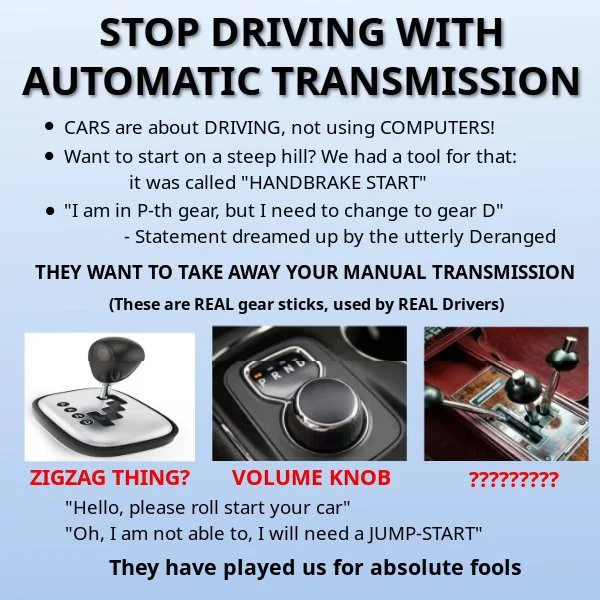this post was submitted on 28 Aug 2023
1324 points (91.4% liked)
Memes
54238 readers
1829 users here now
Rules:
- Be civil and nice.
- Try not to excessively repost, as a rule of thumb, wait at least 2 months to do it if you have to.
founded 6 years ago
MODERATORS
you are viewing a single comment's thread
view the rest of the comments
view the rest of the comments

Isn't it best practice to park in 1st? So that if the handbrake fails the engine brake slows the car a bit rather than it being a free falling projectile.
Reverse is better, it's an even shorter gear than first so the engine has to spin more times per wheel revolution.
I suspect OP still had the engine running. That said, a lot of Americans seem to drive automatics and never use the handbrake, arguing that the tiny little tab in the transmission can hold their fully loaded "truck", so it stands to reason that there are people in the world who leave their cars out of gear and argue that the handbrake could not fail.
Late reply, but no, not unless you are parked on a steep hill without any sidewalks. Leaving it parked in gear puts a great deal of stress on the clutch. Clutches aren't very fun or easy to replace. If you're on a hill with a sidewalk you should turn your front tires away from sidewalk on the incline, and towards the sidewalk on the decline.
Why would there be load on the clutch if the handbrake is on?
I was thinking you meant parking in gear rather than with the parking brake. My bad. You're totally right though.